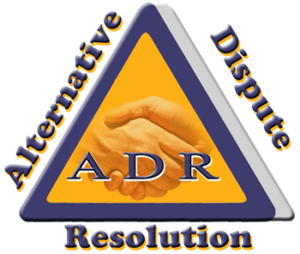ADR programme mediates 4,148 cases in 2018
 The Alternative Dispute Resolution (ADR) Programme from January to December 2018 mediated a total of 4,148 cases, out of which 2,122 were settled, representing a 51 per cent settlement.
The Alternative Dispute Resolution (ADR) Programme from January to December 2018 mediated a total of 4,148 cases, out of which 2,122 were settled, representing a 51 per cent settlement.
Currently the Programme has been extended to 131 Courts across the country with at least five Mediators assigned to each of those Courts, Justice Irene Charity Larbi, an Appeal Court Judge and Judge-in-Charge of the ADR Concept said at the national launch of this year’s (2019) ADR week on Monday in Sunyani.
She said Regional ADR Secretariats staffed with a Regional ADR Coordinator and staff was established in all the (former)10 regions while a total of 635 Mediators had were rained and assigned to those 131 Courts connected to the ADR programme.
The ADR Concept, Justice Larbi stated served as a complement to the traditional court system in making access to justice cheaper, easier, expeditious, non-adversarial and faster for the citizenry, and that also helped in reducing the backlog of cases in the Courts substantially due to the mass mediation exercise, she added.
“This clearly indicates that the ADR Mechanism is a reliable partner to the traditional justice delivery system and must therefore, be embraced and nurtured for a quality justice delivery system”, Justice Larbi emphasised.
That, she stressed was so important since its sustenance was particularly critical in the Judiciary’s goal of promoting excellence, speed and efficiency in Judicial administration.
“We can only achieve the excellence we seek if judicial outcomes are not the product of long, drawn out processes that led to pyrrhic victories for parties in a dispute”, the Judge-in-Charge of ADR indicated.
Justice Larbi underscored the importance and indispensability of the ADR, saying “after nearly 15 years of implementing the Court Connected (CC) ADR Programme with demonstrable, verifiable success, it is our expectation that in the years to come, ADR become not just a complement to the justice delivery architecture, but rather a major plank which would be the go-to option for seeking justice as long as the nature of the case admits of the intervention of the ADR”.
She explained the CC ADR “is very effective and guarantees the interest of both parties” as they are involved in every aspect of the process.
Agreements reached at the end of the process are sent to the Court for adoption as “consent judgement”, thereby making the terms of settlement enforceable by the Court, Justice Larbi added.
Later in response to a question, Mr. Alfred Tuah-Yeboah, the Ghana Bar Association President for Brong-Ahafo advised Mediators to avoid acting as lawyers as that defeated the purpose of neutrality of the ADR Concept.
He also entreated Mediators to endeavour to protect their integrities, saying they must not request for money from parties since that could lead to compromising ones integrity.
Responding to another question, Mr. Alex Nartey, national President, the Judicial Service Staff Association of Ghana (JUSAG) and the National Coordinator of the ADR Concept also clarified that “the ADR does not use precedence in the mediation process but particularly innovative interventions”.
During the ADR week, parties with cases pending in Courts connected to the ADR concept were given the opportunity to have their cases settled through mediation.
In this context, Mediators are assigned to each Court to help the parties resolve cases that were referred to ADR by Magistrates and Judges.
In addition, the week is also used to create mass public awareness to educate the citizenry on the use of ADR, whereas stakeholders – Judges, Court Officials and Lawyers are also sensitized.
Source: GNA
